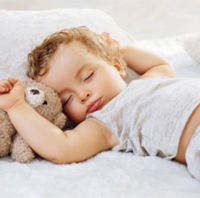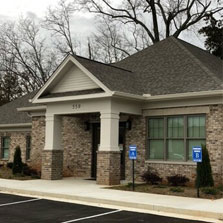How does an Adult’s Sleep Change with Age?
 The older we get, the more time we spend sleeping in lighter stages of sleep and less time spent in the deeper and more restorative stages of sleep. This may be because our bodies make less growth hormone as we age.
The older we get, the more time we spend sleeping in lighter stages of sleep and less time spent in the deeper and more restorative stages of sleep. This may be because our bodies make less growth hormone as we age.
Unfortunately as we age, we seem to be more prone to increased weight. This can also cause poor sleep continuity. Contrary to popular belief, we don’t need less sleep as we get older. Our sleep does become more fractured however. We tend to take longer to fall asleep and we wake up more frequently throughout the night. This may be because our blood may have higher markers of inflammation as we age.
Also, both men and women tend to wake up to urinate more as we age. This could be due to prostate enlargement, menopause, sleep apnea, or consuming a large amount of caffeine throughout the day.
With age, we tend to get sleepier earlier in the evenings. We also wake up earlier in the morning.
Older adults generally have more arousals from sleep throughout the night, regardless of cause.
However, poor sleep quality should not be attributed just to age. Roy Sleep Medicine can evaluate your concerns in a comprehensive manner to ensure the most restorative sleep. Our goal is that you rest well to live well!
How does a Child’s Sleep Change with Age?
 Clearly as we age throughout childhood, we require less sleep per day. As an infant, we slept up to 16 hours per day. However, as we enter adulthood, we sleep much less. Here are some accepted guidelines regarding sleep in kids. Keep in mind, there is considerable variation, based upon lifestyle and genetics.
Clearly as we age throughout childhood, we require less sleep per day. As an infant, we slept up to 16 hours per day. However, as we enter adulthood, we sleep much less. Here are some accepted guidelines regarding sleep in kids. Keep in mind, there is considerable variation, based upon lifestyle and genetics.
Although there can be a great deal of variation, here are some examples of “reasonable” numbers of hours of sleep in kids:
- 0-4 months – 15 hours/night
- 4-12 months – 14 hours/night
- 3 years old – 13 hours/night
- 6 years old – 12 hours/night
- 11 years old – 11 hours/night
- 14 years old – 10 hours/night
- 17 years old – 9 hours/night
At the age of 2, usually children only require 1 nap per day. After the age of 5, naps are usually eliminated.
If your child doesn’t get this much sleep, it doesn’t mean there is a problem. Like adults, many children can “get by” and function normally on less sleep than “normal”. However, if your child is exhibiting any of these symptoms listed below, there may be a problem and an appointment with Dr. Roy should be made:
- Falling asleep in school
- Falling grades
- Increased awakenings during the night
- Snoring on most nights
- “ADD” or “ADHD”
- Feelings of “creepy-crawly” sensations on the legs at night
- High Blood Pressure









KEEP IN TOUCH WITH US